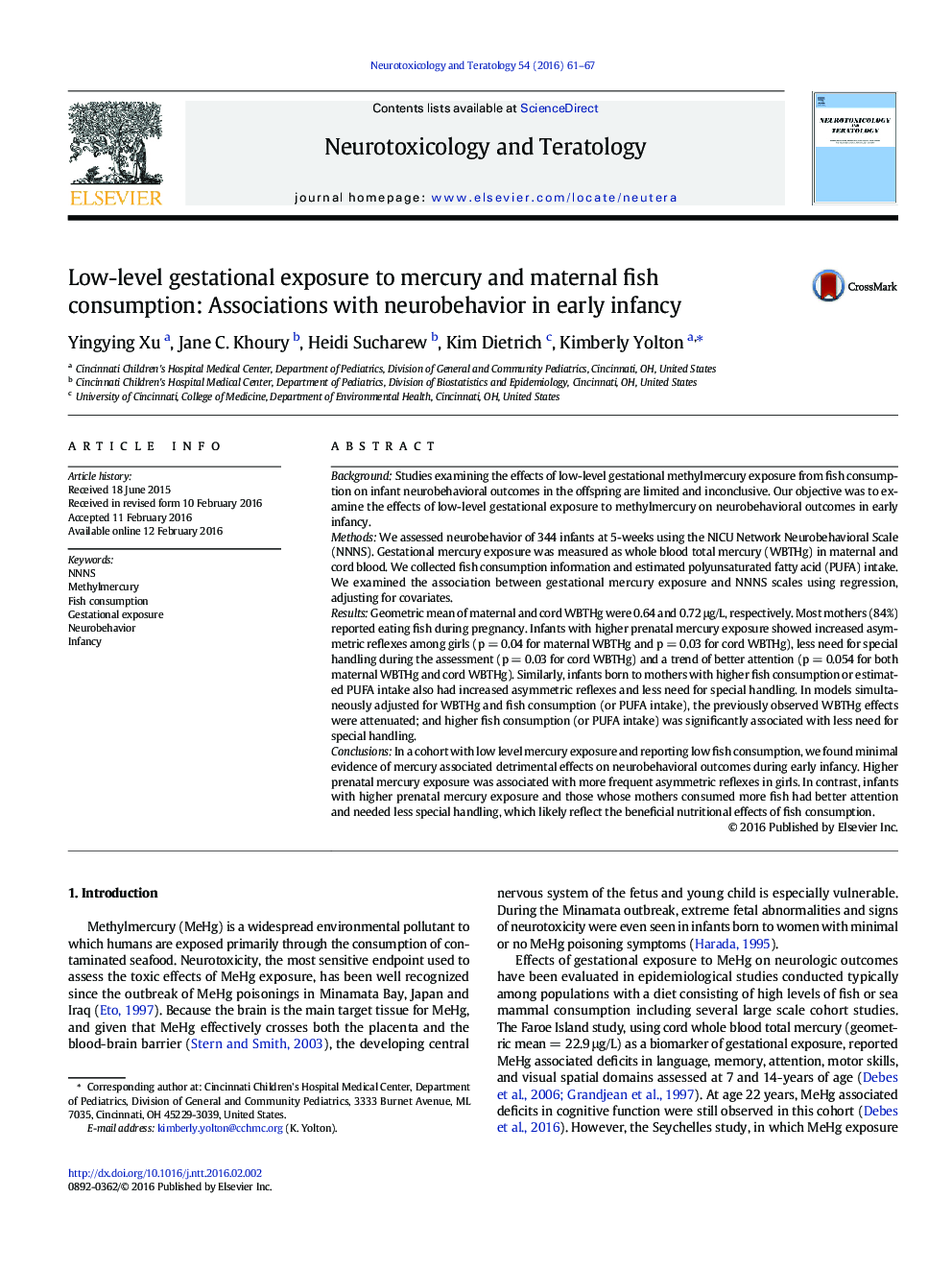| کد مقاله | کد نشریه | سال انتشار | مقاله انگلیسی | نسخه تمام متن |
|---|---|---|---|---|
| 2590836 | 1562082 | 2016 | 7 صفحه PDF | دانلود رایگان |
• Mothers in the cohort had low-level mercury exposure and low fish consumption.
• Neurobehavioral outcomes were examined in early infancy (5 weeks).
• Mercury concentrations were linked with both poorer and better infant outcomes.
• Better performance likely reflects the beneficial aspects of fish consumption.
BackgroundStudies examining the effects of low-level gestational methylmercury exposure from fish consumption on infant neurobehavioral outcomes in the offspring are limited and inconclusive. Our objective was to examine the effects of low-level gestational exposure to methylmercury on neurobehavioral outcomes in early infancy.MethodsWe assessed neurobehavior of 344 infants at 5-weeks using the NICU Network Neurobehavioral Scale (NNNS). Gestational mercury exposure was measured as whole blood total mercury (WBTHg) in maternal and cord blood. We collected fish consumption information and estimated polyunsaturated fatty acid (PUFA) intake. We examined the association between gestational mercury exposure and NNNS scales using regression, adjusting for covariates.ResultsGeometric mean of maternal and cord WBTHg were 0.64 and 0.72 μg/L, respectively. Most mothers (84%) reported eating fish during pregnancy. Infants with higher prenatal mercury exposure showed increased asymmetric reflexes among girls (p = 0.04 for maternal WBTHg and p = 0.03 for cord WBTHg), less need for special handling during the assessment (p = 0.03 for cord WBTHg) and a trend of better attention (p = 0.054 for both maternal WBTHg and cord WBTHg). Similarly, infants born to mothers with higher fish consumption or estimated PUFA intake also had increased asymmetric reflexes and less need for special handling. In models simultaneously adjusted for WBTHg and fish consumption (or PUFA intake), the previously observed WBTHg effects were attenuated; and higher fish consumption (or PUFA intake) was significantly associated with less need for special handling.ConclusionsIn a cohort with low level mercury exposure and reporting low fish consumption, we found minimal evidence of mercury associated detrimental effects on neurobehavioral outcomes during early infancy. Higher prenatal mercury exposure was associated with more frequent asymmetric reflexes in girls. In contrast, infants with higher prenatal mercury exposure and those whose mothers consumed more fish had better attention and needed less special handling, which likely reflect the beneficial nutritional effects of fish consumption.
Journal: Neurotoxicology and Teratology - Volume 54, March–April 2016, Pages 61–67
